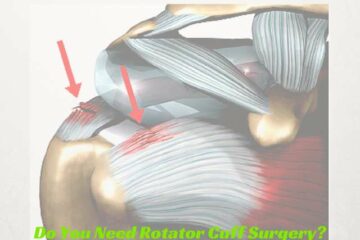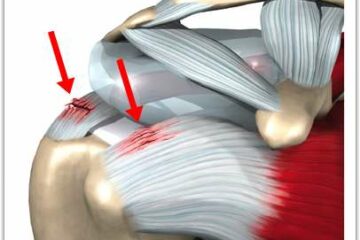
Numerous papers over the last few years have demonstrated a very significant increase in the number of patients being indicated for surgery on their rotator cuff tear. The latest paper came out of the Hospital for Joint Disease. Their findings are alarming.
- The investigators found a total of 168,780 rotator cuff repairs were treated with surgery in NYS from 1995 to 2009.
- In 1995, the population incidence of rotator cuff repairs was 23.5 per 100,000.
- In comparison, in 2009, the population incidence was 83.1 per 100,000, an increase of 238% .
- The percentage of individuals aged between 45 and 65 years undergoing surgery for a rotator cuff repair increased from 53.0% to 64.2% during this same period.
The rotator cuff are the muscles which enable us to move our shoulder. There are actually four of them. The most commonly torn tendon is the supraspinatus and the vast majority of those “tears” are degenerative or attritional. A degenerative or attritional rotator cuff tear is simply a portion of the tendon which wore out over time. Most patients do not have a single traumatic precipitating event which led to the tear. Recent studies have shown that the majority of these tears will not grow in size and that patients will have few if any issues if these rotator cuff tears are treated without surgery. So what’s going on here?
- Are more patients choosing surgery as an option ?
- Are more patients being told that surgery is their only or best option?
- Has the development of minimally invasive techniques led physicians to recommend surgery more often?
- Was the development of a surgical billing code we can submit for payment responsible for the rise?
- Are the patients being told that the science shows that surgery is not needed for many rotator cuff tears?
There are many patients who believe that if something is torn, it therefore must be fixed. It takes a while to convince them otherwise. It seems counter-intuitive to them that surgery is not necessary to fix a rotator cuff tear in order to alleviate their discomfort. Most patients, if you take the time to talk to them will understand. Some may not and will easily find someone to operate on them.
There are surgeons who are routinely treating the MRI findings and not necessarily the patient who will recommend surgery for a rotator cuff tear simply because it is present… despite their knowledge of the current literature. Why? Because fixing a tear surgically pays more than talking to a patient for 30 minutes about why the surgery might not be necessary.
The authors of the study mentioned in the opening sentence correlated the increase in rotator cuff repairs with the development of a billing code, called a CPT code, which allows the surgeon to bill the insurers for the repair. They found a direct correlation between the release of this code and the increase in the number of patients who had surgery for rotator cuff tears.
Bottom line… as we age, rotator cuff tears become very common. Most of them occur because our tissue simply wore out. Many small degenerative rotator cuff tears do not require surgery in order to alleviate your pain. Most small degenerative rotator cuff tears will not grow in size.
You want to be treated as a patient, not as an MRI finding or CPT code. Make sure you hit the books (Google) and look for meaningful information about the issue you suffer from. Make sure to question your surgeon. If your doctor isn’t willing to engage… walk.
Any questions?














I have my MRI report in front of me. The impressions are as follows
1)Full Thickness tear unvolving the supraspinatus tendon retracted 3cm from the greater tuberosity.
2)Full Thickness tear involving the infraspinatus tendon retracted from the greater tuberosity.
I watched your video and it states. That retracted tears are harder to repair.
I see my Ortho next Friday.
What are your thoughts?
It’s true … retracted tears are more challenging to fix and have a lower healing rate (or higher failure rate) after surgery. But each case is different. At least you now know what to talk to your surgeon about.
Good Luck
I have a large rotator cuff on my right side . I have been told that surgery is the only way that I can go. I have been putting this off as I am scared to have it done. How long can I go without the surgery and will it keep tearing? Also I live in the north country and the cold weather seems to make it unbearable . Any thoughts?